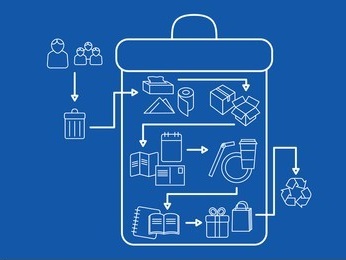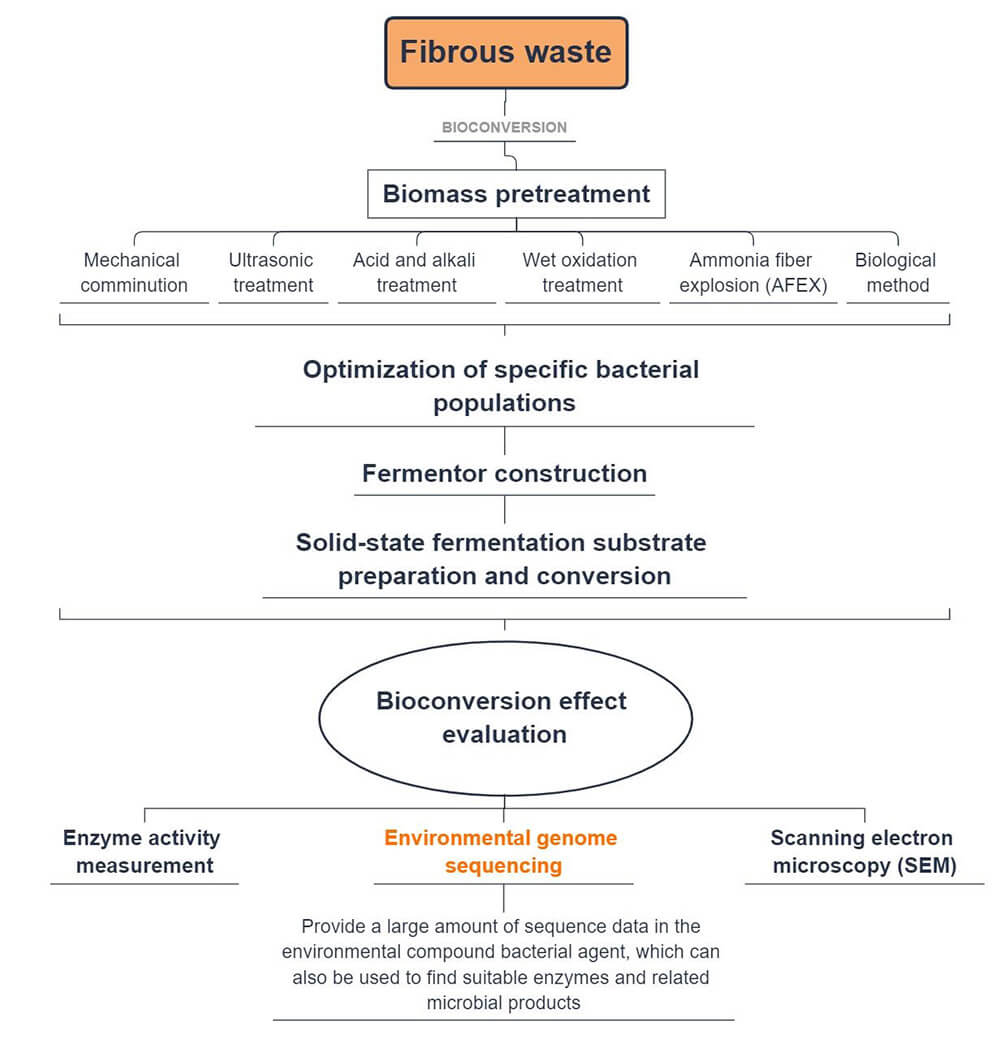Improper disposal of solid waste can seriously affect human health and the ecological environment, and the usual treatment methods for waste can be divided into five main categories.

Lifeasible is not only an expert in the environment but also a practitioner of environmental protection, which is why we promote more optimal, promising, and environmentally friendly waste disposal methods. Therefore, in addition to providing technical services for customized solutions in the area of biodegradation, we also offer our customers solutions in the area of waste bioconversion.
We aim to develop a clean and sustainable method (for efficient bioconversion) to manage part of the organic waste and alleviate the environmental problems caused by organic solid waste. We have already assisted our clients in achieving results in the bioconversion of fibrous (xylose residue, wheat bran, corn straw, corn cobs, sugarcane bagasse, etc.) waste.

Environmental genomics can yield much more information than cultured communities, and the main component is the isolation of large DNA fragments from mixed communities for cloning analysis. The evaluation method of environmental genome sequencing in the above process was carried out based on the sequence analysis of bacterial 16SrRNA genes because the sequences of 16SrRNA genes are widely used to identify bacterial strains and systematic taxonomic studies.
There are nine hypervariable regions contained between the conserved sequences of the 16SrRNA gene. We can design primers to amplify the DNA sequences of the hypervariable regions by using the conserved sequences on both sides of the hypervariable regions. Lifeasible can perform both traditional genomic studies (sequencing and annotation) and functional genomics to serve the screening and optimization of biotransformed bacteria.
Lifeasible provides waste bioconversion solutions using the physiological properties of microorganisms themselves (which can adapt to environmental changes through biological processes such as genetics and mutation and can use various pollutants as nutrient sources to convert pollutants in the environment into stable and harmless inorganic substances through a series of reactions such as uptake and metabolism) and the general properties of waste. You can contact our staff directly to submit a request or obtain the latest waste bioconversion solutions.
Lifeasible has established a one-stop service platform for plants. In addition to obtaining customized solutions for plant genetic engineering, customers can also conduct follow-up analysis and research on plants through our analysis platform. The analytical services we provide include but are not limited to the following:
Get Latest Lifeasible News and Updates Directly to Your Inbox
Adaptive Evolutionary Mechanism of Plants
February 28, 2025
Unraveling Cotton Development: Insights from Multi-Omics Studies
February 27, 2025